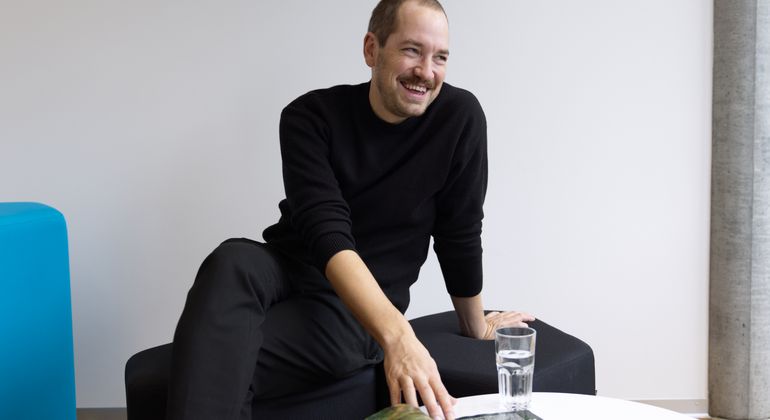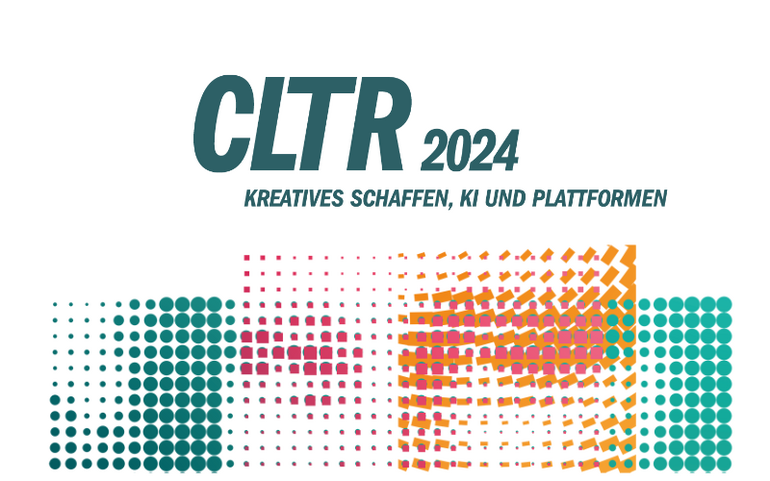Marc Hottinger is a lawyer working in the Legal & International Affairs Division of the IPI. He’s been an active composer and musician for over twenty years and has played guitar and bass for well-known Swiss bands such as Stress and Snitch. In his spare time, he continues to play in various bands and also travels internationally. At the public event CLTR 2024, he’ll be assisting the team with copyright questions.
For IP professionals
This is the portal for professionals working in the field of intellectual property. Here you'll find direct access to all necessary resources.
Quick links
A lot can be lost at the creative level if AI irons out all human imperfections
When Marc Hottinger was working full-time as a performing artist and composer, artificial intelligence hardly played any role in the music industry and streaming platforms were still in their infancy. Now, the industry is at a completely different point and he thinks that a transparency requirement for music creators will be important in future. Marc Hottinger works as a legal adviser at the Swiss Federal Institute of Intellectual Property (IPI) and is still a passionate musician in his spare time.

Marc, you’ve experienced the technological developments in the music industry at first hand over the last twenty years. How have streaming platforms and AI changed the world of music?
Marc Hottinger: Platforms have made it possible for musicians to bring works to the global market in a simple and cost-effective way, without having to rely on the original distribution channels. I consider it a positive development that this has removed a barrier and musicians are no longer dependent on a contract with a label. When it comes to visibility and marketing, however, it remains very difficult to attract attention. In this respect, collaborating with well-connected and influential partners is still crucial for a work to be distributed successfully.
With regard to songwriting, analyses show that you have to grab the listener’s attention from the very start to prevent them from clicking further. Do platforms lead to a lack of variety in music?
The tendency for pop songs to follow certain patterns, which has been evident for a long time, has now been scientifically proven. The songs that are successful in the charts, for example, are now shorter. Platforms such as Spotify count a song as ‘listened to’ if it has been played for 30 consecutive seconds. As a musician, you’re automatically focused on ensuring that your song is memorable enough during this short period of time in order to generate as many ‘plays’ as possible. Of course, The Beatles were already writing short songs in their day. However, I think that the difference to back then is that now you have to focus on these principles much more heavily and systematically in order to be rewarded with more visibility by the algorithms, and creativity ultimately suffers as a result.
When I know that a work has been written by AI, I listen to it with different ears than if it had been created by an artist. When a human writes music, their personal experiences always flow into it. The great thing about good songs is that they’re sometimes not linguistically or musically correct and they’re allowed to be that way. If AI automatically irons out every grammatical mistake and every tonal nuance or doesn’t allow them to be there in the first place, a lot can be lost at the creative level.
"The great thing about good songs is that they’re sometimes not linguistically or musically correct and they’re allowed to be that way."
Music platforms make it possible to easily download and stream licensed works. Companies like Spotify and Apple Music are generating massive sales as a result. What does all of that look like from the music creators’ side?
Superstars like Taylor Swift earn millions from platforms like Spotify – that’s great for her. For the average Swiss band, the electricity used in production is probably more expensive than the remuneration they get for clicks on Spotify. As a simple musician, it’s very difficult, almost impossible, to earn enough money to make a living from platforms alone.
Some bands can benefit from the reach offered by the platforms by drawing listeners to their live concerts, thus generating income. However, since the pandemic, it’s become more difficult for lesser-known bands to perform at all, as many smaller cultural venues have had to close their doors. Being able to tour profitably has become a privilege reserved for musicians and bands who are already well known.
Does it help musicians if AI-generated works are labelled as such?
Under current law, a musical work is protected by copyright if it was written and composed by a human being. This protection is not granted to an AI-generated work. This raises two questions for me: How do you verify whether a song has come from a human or a machine? And where do we draw the line between ‘generated by AI’ and ‘created with the help of AI’? I can use a prompt at home to create a drum intro for the song structure, which is then performed by a drummer in the studio recording. But the piece would still be considered created with the help of AI, wouldn’t it?
I think that a transparency requirement is needed. It’s not right that music creators who put all their energy into their work end up getting less for it than those who let AI create their works at the snap of a finger.

